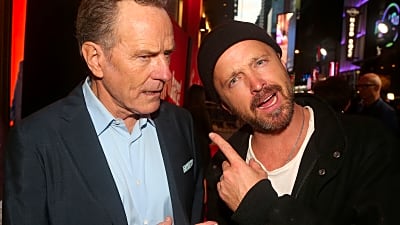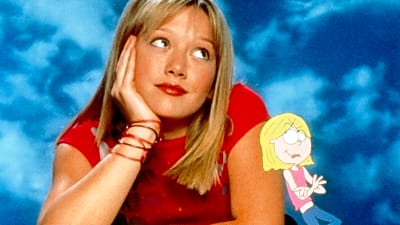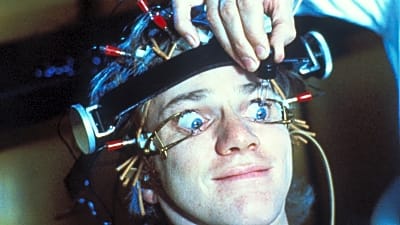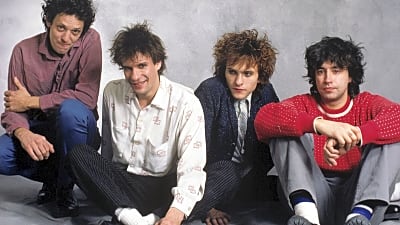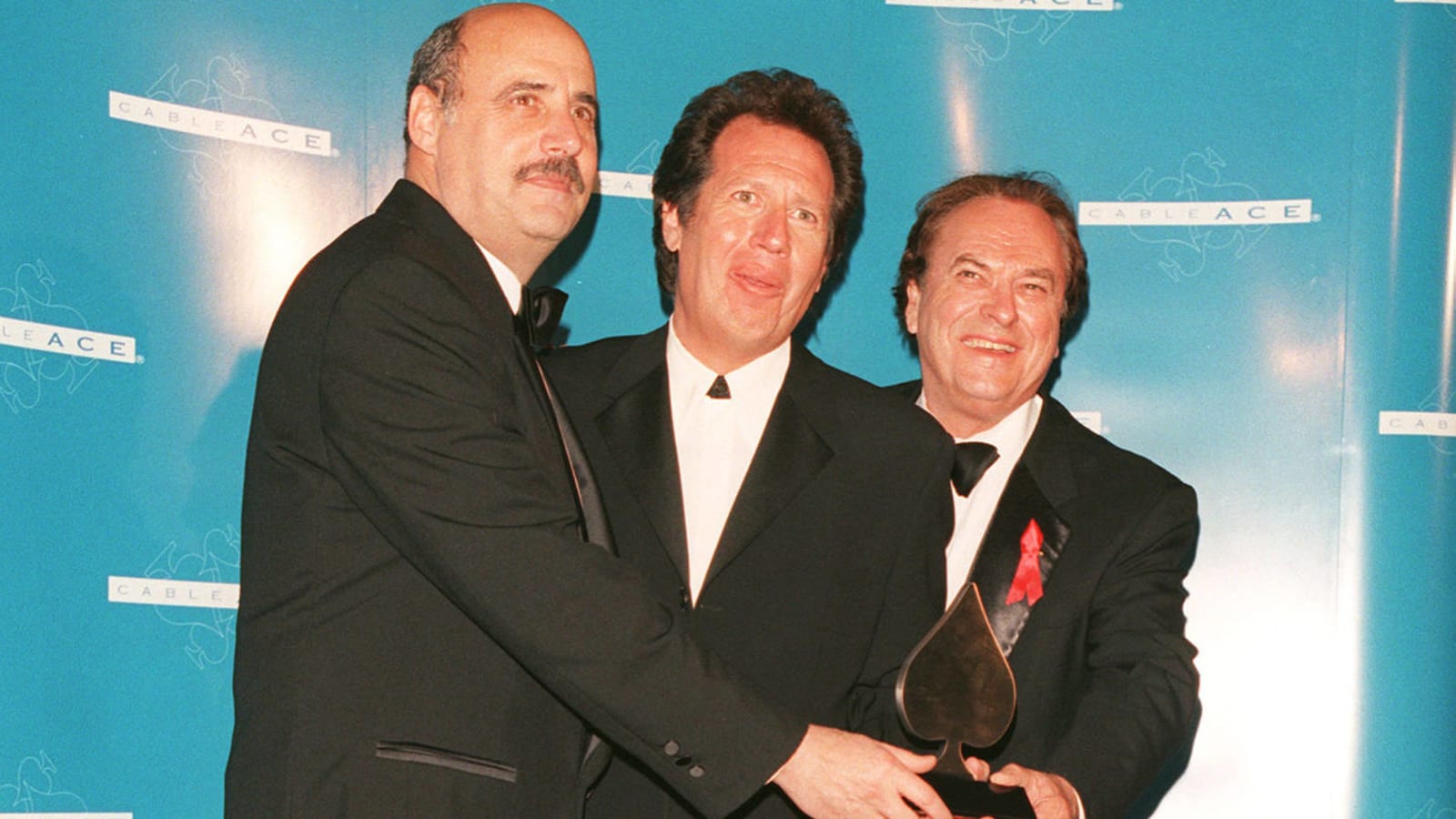
The death of the CableACE Awards and what it means for the future of streaming
On Nov. 14, 1997, the "South Park" kids presented the award for best "Talk Show Series" at the 19th annual CableACE Awards. This was right before the show's popularity truly hit a fever pitch, as evidenced by the characters' dig at the organizers for not deeming their win for "Animated Programming Special or Series" worthy of being broadcast. "South Park" would never win another CableACE Award, nor anyone else for that matter –– the event was canceled for good the following spring.
The National Cable & Telecommunications Association's decision to kill off the CableACE Awards wasn't a sentimental one. Originally created in 1978 as an answer to the Emmy Awards' perpetual exclusion of cable programming from its list of nominees, the trade association felt that its annual ceremony had fulfilled its purpose by that point.
"We created the ACE Awards two decades ago, at the infancy of the industry, and at a time when we were insecure and felt we would never get the recognition," John Hendricks, chairman of the National Academy of Cable programming, told the Chicago Tribune on April 11, 1998, the day the ACE Awards officially got their plug pulled. "We have come such a long way."
It's true. Just two years after the final ACE Awards, the first season of "The Sopranos" received 16 Emmy nominations. The HBO series only won one award, but that was more than enough to make history –– Edie Falco's win for "Outstanding Lead Actress in a Drama Series" was the first ever for a cable network in that category. It was a watershed moment for cable TV, paving the way for shows like the "The Daily Show with Jon Stewart" (23 Emmys), "Sex and the City" (7 Emmys), "Mad Men" (16 Emmys) and "Game of Thrones" (38 Emmys to date!) to dominate the awards show year after year. Even "South Park" got in on the collection of hardware, winning four Emmys for "Outstanding Animated Program (for Programming Less Than One Hour)" since its 1997 premiere.
In fact, the current television landscape is such that a network TV show winning an Emmy in any of the major categories is the exception rather than the rule –– Sterling K. Brown's win for "Outstanding Lead Actor in a Drama Series" for his role on NBC's "This Is Us" last year is a great example of this. It turns out that the so-called new "Golden Age of Television," an era that's still ongoing, was at least partially ushered in by cable.
Make no mistake, the CableACE Awards were primarily about giving a spade-shaped statue to as many recipients as possible –– think of them as television's equivalent to participation trophies in children's organized sports. According to "The Encyclopedia of Television, Cable, and Video," Steve Allen had to give out so many trophies when he hosted the 3rd Annual CableACE Awards in 1981 that "he flubbed the announcement of an award to Sidney Fluck by dropping one letter." By 1989, there were more than 1,214 nominees in contention.
But even if the CableACE Awards were created as a means to showcase as much cable programming as possible to audiences –– at times, the broadcast, which simultaneously aired on several channels, felt like a trade show (see the "Space Ghost From Coast to Coast" bit from 1995 below featuring "Beavis and Butt-Head") –– there certainly was quality among the quantity. Television shows that were ahead of their time but were largely ignored by Emmy voters got some of the recognition and accolades they were rightfully due thanks to it.
At the last ceremony, HBO cleaned house, snagging 32 wins largely on the backs of "Oz" and "The Larry Sanders Show," two series that have become part of the American television canon (the former because it was the first drama series HBO ever produced, and the latter because it redefined comedy TV as we know it). Also picking up wins that year were Showtime's "The Outer Limits" and "Hunger" –– two shows that were doing sci-fi and fantasy/horror more than a decade before the premieres of "Black Mirror" and "True Blood" –– and Nickelodeon's "Rugrats" and "Kenan & Kel" (in what was easily the upset of the night, Kel Thompson beat out Garry Shandling, Jeffrey Tambor and Rip Torn of "The Larry Sanders Show" to win top "Actor in a Comedy Series"). To be fair to the Emmys, the Television Academy did gradually embrace cable programming –– "The Larry Sanders Show" won three Emmys for its final season in 1998, the first year after the CableACE Awards were canned. They had wised up by that point. The fact that the number of cable subscribers in America was at an all-time high around that period probably had a lot to do with it.
It's worth revisiting this tidbit of television trivia 20 years later because the entertainment industry finds itself in a similar tiff, albeit with different players. Instead of cable wanting to be seen by the Emmys, streaming companies are thirsting for validation. Amazon and Netflix (which coincidentally launched on Aug. 29, 1997, just months before the final CableACE Awards aired) have made a concerted effort to be seen as producers of prestigious movies but have faced opposition by the stalwarts of film. Steven Spielberg, for example, recently opined that Netflix films shouldn't be nominated for Oscars because he considers them to be TV movies. The streaming giants are also banned from competition at the Cannes Film Festival because they don't do theatrical releases. Never mind that Amazon and Netflix already have Oscars, or that they've already had movies premiere at the renowned festival ("Wonderstruck" and "Okja," which received a four-minute standing ovation).
Spielberg and Cannes are wrong, of course. The good news is that the television powers that be no longer are. Emmy voters appear to have learned from underestimating cable and have been very kind to Big Streaming as a result. Hulu's "The Handmaid's Tale" made a splash last year, picking up eight wins out of 13 nominations for its first season; Netflix has been collecting statues since 2013 –– it now has 45 Emmys out of 225 noms –– thanks to shows like "House of Cards," "Master of None," "Orange Is the New Black" and the documentary series "Making a Murderer"; Amazon's mantle isn't too bad either, having won Emmys for "Transparent" and "Mozart in the Jungle."
It's only a matter of time before the film industry buckles and accepts the inevitable change that's been coming ever since Netflix and its streaming cohorts decided to make content in addition to distributing it. You can't stop progress. Just as the advent of cable disrupted television, the same thing is happening to movies, whether Steven Spielberg and those like him like it or not. After all, to borrow from the Emmy-winning cable series "True Detective," time is a flat circle.
More must-reads:
- Do you know the films that these 20 iconic memes came from?
- The rarest and weirdest achievements in Oscar History
Breaking News
Trending in Entertainment
Customize Your Newsletter
 +
+
Get the latest news and rumors, customized to your favorite sports and teams. Emailed daily. Always free!



